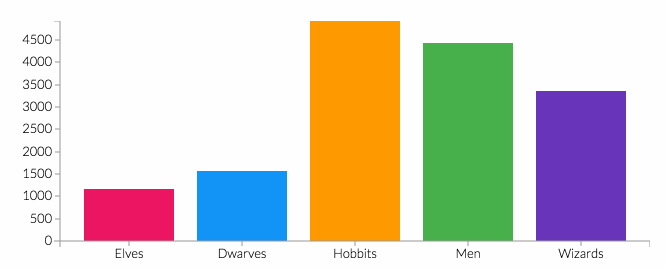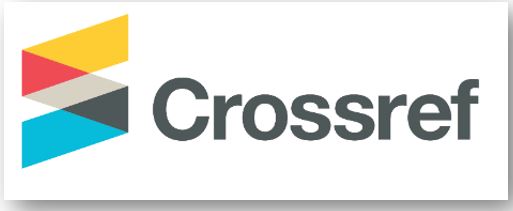Needs in The Thinking of Abraham Maslow and Maqashid Sharia
DOI:
https://doi.org/10.61231/miftah.v1i2.143Keywords:
Needs; Abraham Maslow; Maqashid Sharia; Self-ActualizationAbstract
Everyone is always faced with the fulfillment of unlimited needs. The purpose of this study is to examine the levels of human needs according to Abraham Maslow and maqasid sharia. A normative and sociological research methodology approach that bases analysis on social phenomena. The results of the observation of Abraham Maslow's theory are studied in the discipline of sharia. The concept of maqasid sharia places religion as a benchmark in order to save human souls. The levels of need in the sharia maqasid concept include hifdz addin (preservation of religion), hifdz al nafs (preservation of the soul), hifdz al mal (preservation of property), hifdz aql (preservation of reason), and hifdz al nasl (preservation of offspring). Abraham Maslow stated that someone who has achieved self-actualization is universal, will be able to uphold the values ??of goodness in dealing with others even though it is not religious. The concept of maqasid sharia views the achievement of human self-actualization as humans will tend to be more obedient to God and always do good to others
References
Abraham Maslow. (1993). Motivasi dan Kepribadian, alih bahasa: Nurul Iman. Rosyda Karya.
Chaplin, J. P. (2008). Kamus Lengkap Psikologi. PT RajaGrafindo Persada.
Departemen Agama RI. (2005). al-Qur’an Mushaf dan al-Qur’an Terjemah. Al Huda.
Feist, J. & Feist, G. J. (2006). Theories of Personality. McGraw Hil.
Frank G. Goble. (1971). Madzhab Ketiga Psikologi Humanistik Abraham Maslow. PT Kanisius.
Hadori, M. (2015). Aktualisasi-Diri (Self-Actualization); Sebuah Manifestasi Puncak Potensi Individu Berkepribadian Sehat (Sebuah Konsep Teori Dinamika-Holistik Abraham Maslow). LISAN AL-HAL: Jurnal Pengembangan Pemikiran Dan Kebudayaan, 9(2), 207–220. https://doi.org/10.35316/lisanalhal.v9i2.92
Ina Zainah Nasution. (2020). Metapatologi Abraham Maslow Menurut Perspektif Al-Quran. Al-Ulum: Jurnal Pendidikan Islam, 1(2), 184–198. https://doi.org/10.56114/al-ulum.v1i2.68
Jasser Auda. (2013). Maqasid Untuk Pemula. Suka Press UIN Sunan Kalijaga.
Lantos, G. P. (2011). Consumer behavior in action?: real life application for marketing managers. M.E. Sharpe, Inc.
Louis Leahy. (1993). Manusia Sebuah Materi, Sintesis Filosofis tentang Makhluk Paradoksal. PT Gramedia.
M. Amin Abdullah. (2002). Antara Al-Ghozali dan Kant, Filsafat Etika Islam, (1st ed.). Mizan Media Utama.
Masbur. (2015). Internalisasi Nilai-Nilai Pendidikan Perspektif Abraham Maslow (1908-1970) (Analisis Filosofis). JURNAL EDUKASI: Jurnal Bimbingan Konseling, 1(1), 29. https://doi.org/10.22373/je.v1i1.316
Miftachul Ulum. (2013). Mahir Analisa Data SPSS Statistical Product, Service Solution. Ghaneswara.
Minner, J. B. (2002). Organizational behavior?: foundation, theories, and analyses. Oxford University Press.
Muhammad Harfin Zuhdi. (2013). Formulasi Teori Maslaha dalam Paradigma Pemikiran Hukum Islam Kontemporer. Istinbath, 12(1).
Nurwatie, A., Fauzia, R., & Akbar, S. N. (2016). Perspective of Abraham Maslow’s Humanistic Psychology in Reviewing Motive of Murder. Jurnal Ecopsy, 1(4). https://doi.org/10.20527/ecopsy.v1i4.503
Schultz, D. (2010). Psikologi Pertumbuhan; Model-Model Kepribadian Sehat. Kanisius.
Ulum, M. (2020). Basic Statistic With Statistical Package for Social Sciences (SPSS) (2nd ed.). Pustaka Ilalang.
Ulum, M., & Mun’im, A. (2021). Antecedents of Consumer Behavior at Islamic Bank in Indonesia. Iqtishodia: Jurnal Ekonomi Syariah, 6(1).
Ulum, M. ., & Mun’im, A. . (2023). Leadership and Performance of Teachers and Employees of SMK Sunan Drajat Lamongan. Multidisciplinary Journal of Education , Economic and Culture, 1(1), 1–12. https://doi.org/10.61231/mjeec.v1i1.48
Ulum, M. (2023). Application of Sharia Principles and Consumer Interest in Sharia Hotels. Miftah : Jurnal Ekonomi Dan Bisnis Islam, 1(1), 11–18. https://doi.org/10.61231/miftah.v1i1.69
Yudian, W. A. (1995). Filsafat Hukum Islam dan Perubahan Sosial terjemahan Muhammad Khalid Mas’ud Islamic Legal Phylosify: A study of Abu Ishaq al Satibi’s Life and Thought. Al-Ikhlas.
Yuliana, A. (2019). Teori Abraham Maslow dalam Pengambilan Kebijakan di Perpustakaan. LIBRARIA: Jurnal Perpustakaan, 6(2), 349. https://doi.org/10.21043/libraria.v6i2.3845
Downloads
Published
Issue
Section
License
Copyright (c) 2023 Miftachul Ulum, Abdul Mun'im, Rahmah Salsabila Al Maghfuri

This work is licensed under a Creative Commons Attribution 4.0 International License.
You are free to:
- Share — copy and redistribute the material in any medium or format for any purpose, even commercially.
- Adapt — remix, transform, and build upon the material for any purpose, even commercially.
- The licensor cannot revoke these freedoms as long as you follow the license terms.
Under the following terms:
- Attribution — You must give appropriate credit , provide a link to the license, and indicate if changes were made . You may do so in any reasonable manner, but not in any way that suggests the licensor endorses you or your use.
- No additional restrictions — You may not apply legal terms or technological measures that legally restrict others from doing anything the license permits.
Notices:
You do not have to comply with the license for elements of the material in the public domain or where your use is permitted by an applicable exception or limitation .
No warranties are given. The license may not give you all of the permissions necessary for your intended use. For example, other rights such as publicity, privacy, or moral rights may limit how you use the material.














